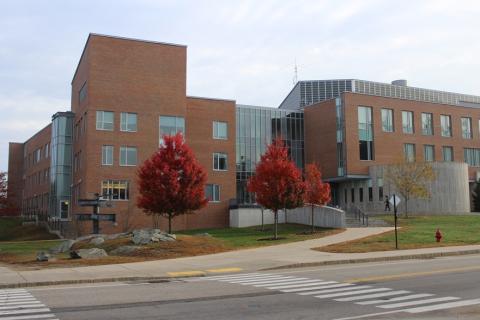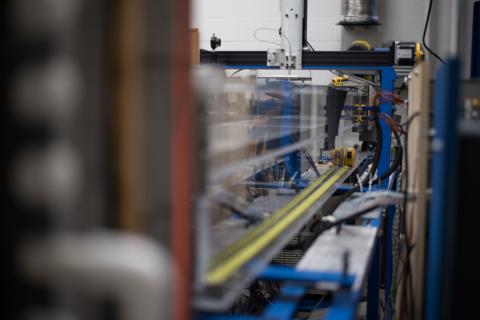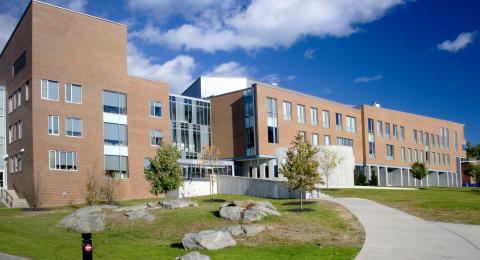The College of Engineering and Physical Sciences' dedication to teaching, research and service reflect the mission of the University of New Hampshire, the State's Land Grant, Sea Grant and Space Grant institution and its only public research university.
Preamble
The University of New Hampshire (UNH) is a land-, sea- and space-grant institution with a Carnegie Foundation high research activity classification. The UNH College of Engineering and Physical Sciences (CEPS) is nationally unique in the positioning of mathematics and the physical sciences (chemistry, earth sciences and physics) in the same administrative unit as computer science and the four engineering departments (Chemical Engineering, Civil Engineering, Electrical and Computer Engineering, and Mechanical Engineering). This provides the opportunity to address 21st century problems, which inherently require interdisciplinary efforts, often combining engineering with the physical sciences, and both incorporating mathematics and computer science in educational, research and entrepreneurial activities.
Mission
Our mission is to foster a world-class, interdisciplinary education and research environment that cultivates mastery of science, math, and engineering fundamentals while promoting experiential learning, entrepreneurship, and community engagement.
Vision
We will be a welcoming and collaborative community of science, mathematics, and engineering scholars who guide our students and inspire each other to pursue innovative ideas and to develop sustainable solutions to grand societal challenges through state-of-the-art pedagogy, top tier research, and impactful entrepreneurship.
Core Values
Service to Community - As an academic college in a land, sea, and space grant institution (1 of only 17 in the nation), CEPS is committed to serving our region and beyond and to providing equitable pathways for success to students of all backgrounds.
Student-Centered Learning - Our longstanding tradition of student-focused education emphasizes personalized and engaged student learning throughout their time in CEPS. Experiential learning is a key attribute accomplished through curricular and co-curricular experiences including projects, internships, and research opportunities for undergraduate and graduate students.
Excellence in Research and Scholarship - CEPS fosters knowledge creation, dissemination, and implementation at all levels through transformative research and scholarship.
Welcoming Community - CEPS is an inclusive, respectful, and collaborative community, welcoming individuals of diverse backgrounds, identities, and personal perspectives. Students, faculty, and staff choose CEPS due to its collegial culture and engaging learning, working, and living environment.
Academic Departments

Office of the Dean

Technical Service Center
Upcoming Events
-
Feb222 p.m. - 2 p.m.
-
Feb239 a.m. - 4:30 p.m.
-
Feb237:30 p.m. - 9:30 p.m.
-
Feb242:10 p.m. - 4:10 p.m.
Recent news
-
New instrument expands research capabilities, accelerates innovation, and gives students in-demand biotech skillsWednesday, December 17, 2025
-
Learn how to properly bundle up to fend off frigid temperaturesTuesday, December 16, 2025
-
Professor of computer science weighs in on what AI's rapid evolution means for society at large and education at UNHTuesday, December 16, 2025
-
10 UNH-built space instruments will study aurora, sun’s impacts on satellitesSunday, December 14, 2025
